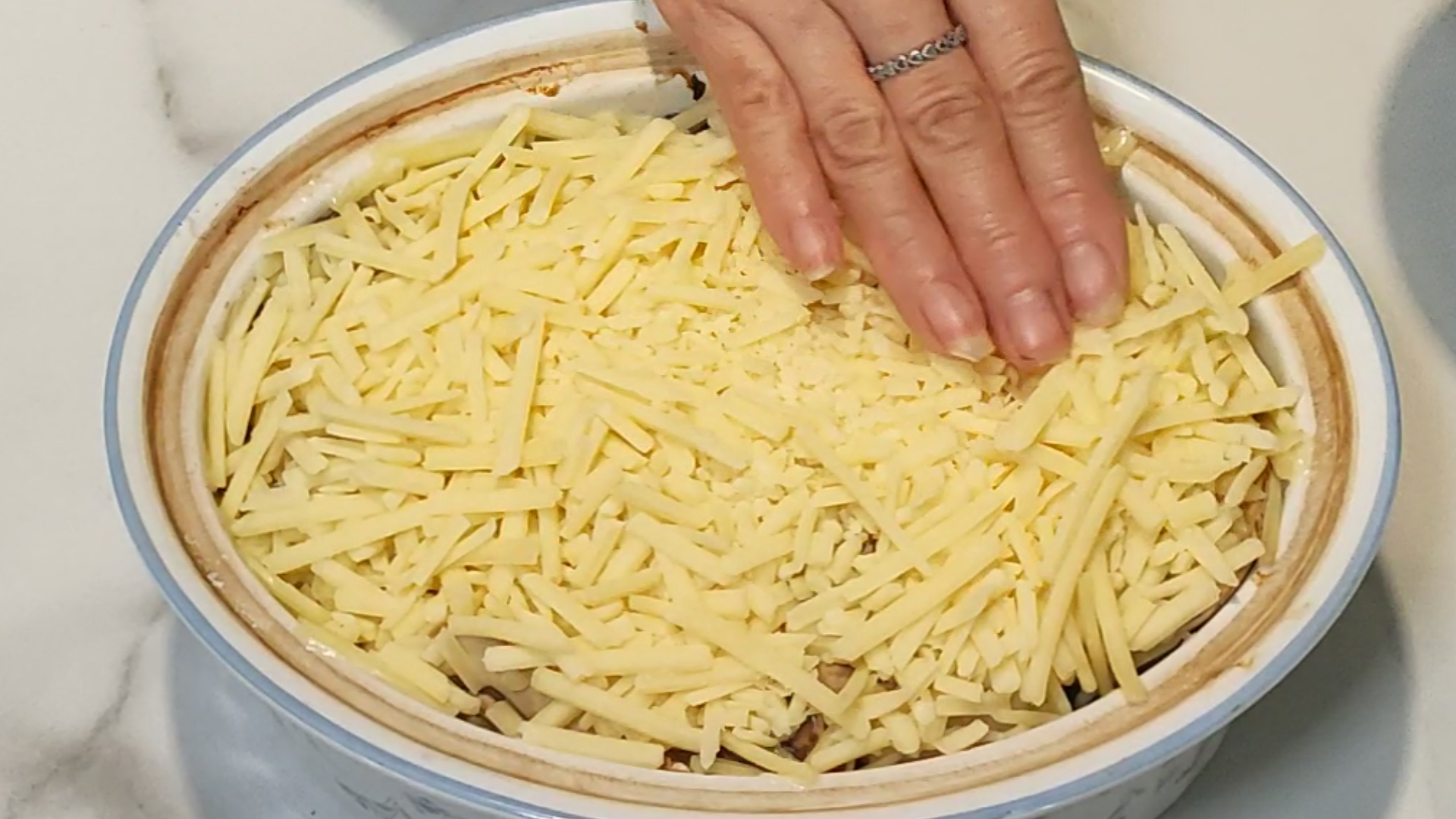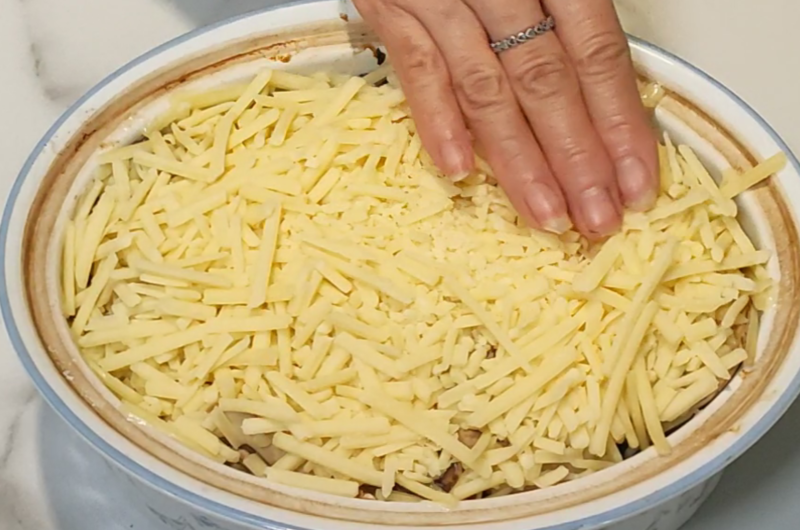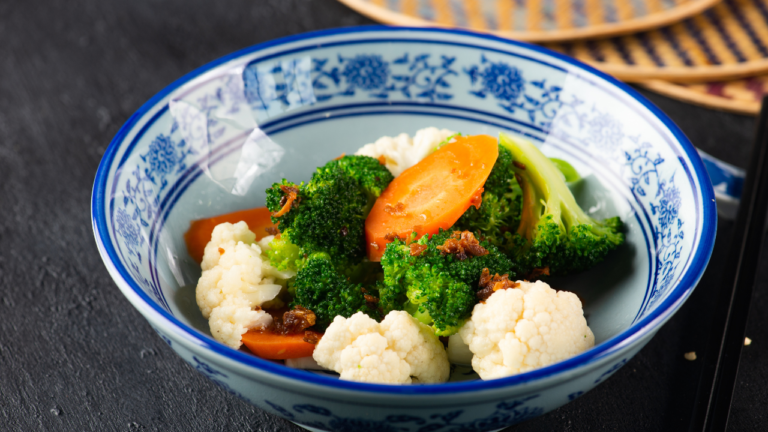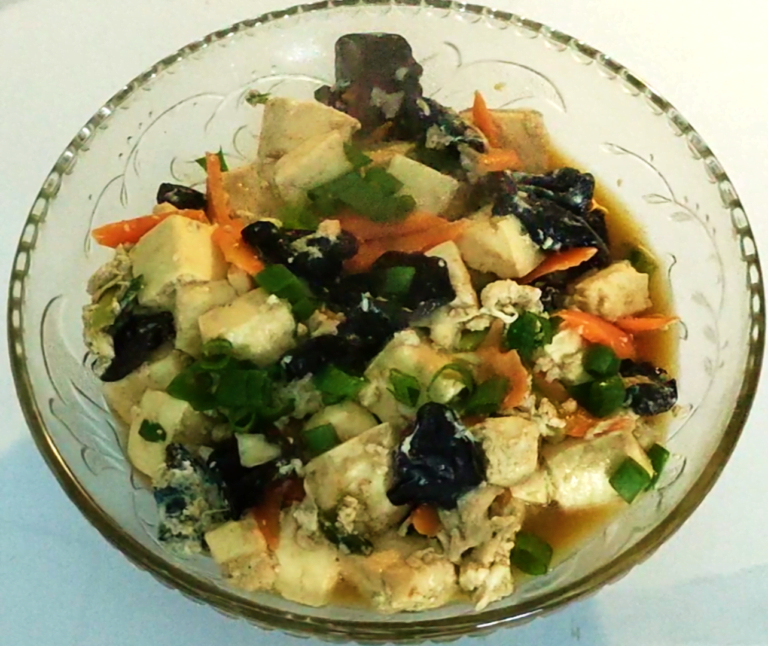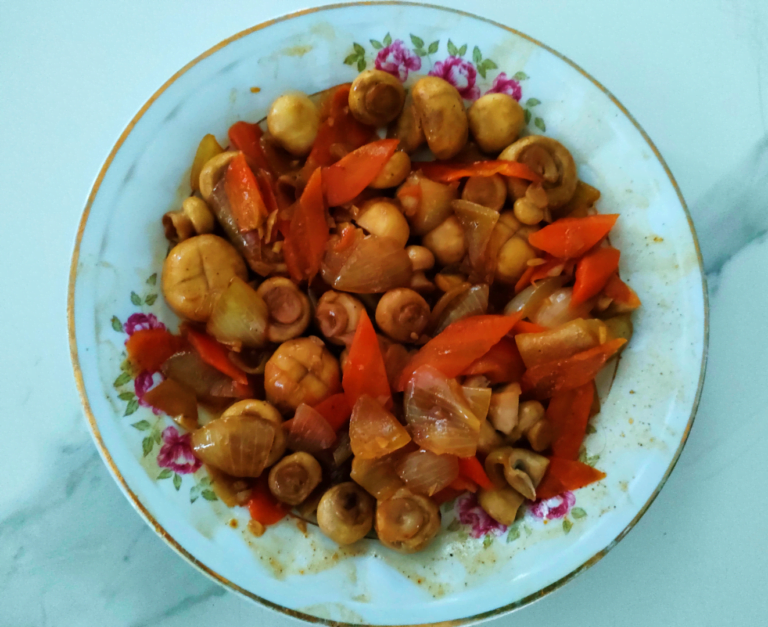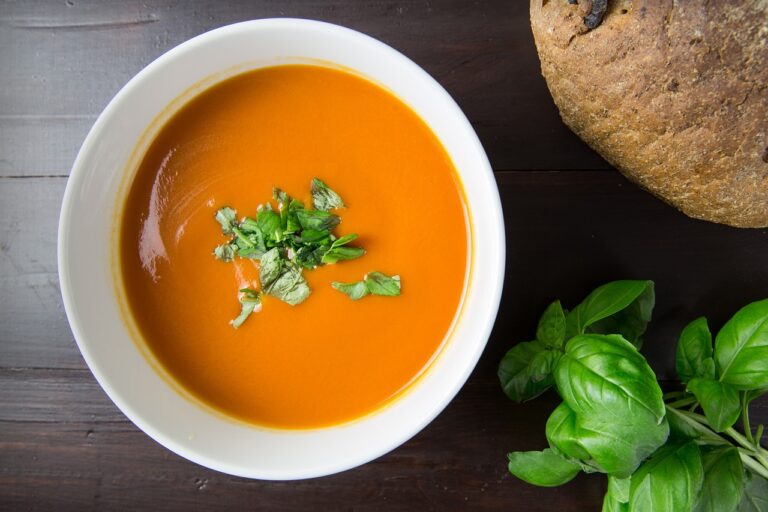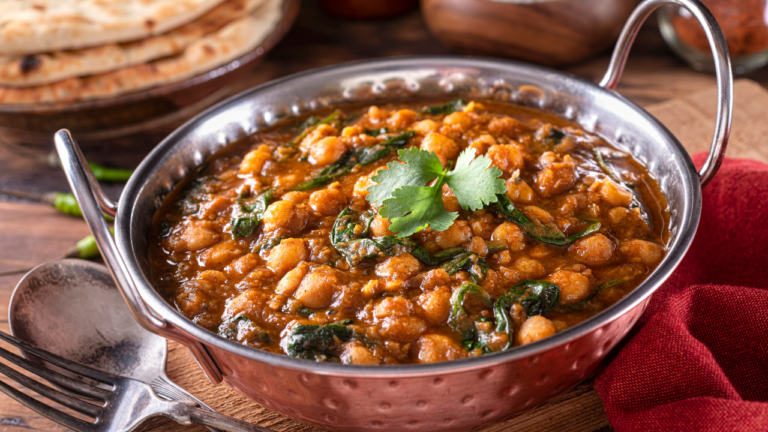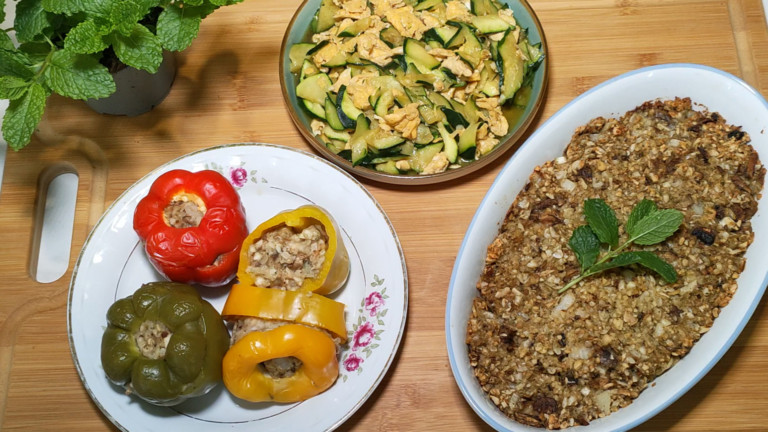How to Make a Vegetable Compost Meal with Zucchini
Vegetable compost meals are a delightful way to embrace sustainability while enjoying a wholesome, nutritious meal.
Vegetable Compost
4
servings30
minutes1
hour225
kcalA simple Zucchini vegetable compost
Ingredients
4 Zucchini / Courgette
5 potatoes
4 carrots
12 florets of cauliflower
12 florets of broccoli
4 cloves of garlic
150g – 5.25 OZ of mushroom
250g – 8.82 OZ of grated cheese
Directions
- Slice all your vegetables into approximately ¼-inch thick slices (try to keep them the same)
- Using a deep pan put a double layer of zucchini (the moisture creates steam for the cooking process)
- add a layer of potato, with another layer of zucchini
- (optional) if you like garlic and some at each layer from now on
- add a layer of carrots, with another layer of zucchini
- add a layer of broccoli and cauliflower and a layer of zucchini
- repeat this method for each new layer and vegetable by adding zucchini between each layer(don’t forget your garlic)
- then simply place the pan over the hob with the lid on and cook for 20/30 minutes until veg is softening
- pre-heat the oven to 200c – 392f
- transfer veg from pan to a deep baking dish with lid
- bake for a further 20 minutes
- remove and place a layer of mushrooms, bake for another 10 minutes
- remove add the grated cheese, bake for a further 2-3 minutes
Notes
- don’t be afraid to experiment!
- watch the videos subscribe to our channels and leave a comment thanks!!
This method of cooking not only reduces waste but also transforms simple ingredients into a culinary masterpiece. In this guide, we’ll spotlight zucchini, a versatile and nutrient-rich vegetable, to create a delectable compost meal.

The Nutritional Powerhouse: Zucchini
Zucchini, often underrated, is a nutritional dynamo. Packed with vitamins A, C, and K, it also boasts significant amounts of manganese, potassium, and magnesium. This low-calorie vegetable is high in antioxidants and fiber, promoting digestive health and boosting the immune system. Its subtle flavor and tender texture make it an ideal candidate for various culinary applications.
Gathering Your Ingredients
To create the perfect vegetable compost meal, start with the freshest ingredients. Besides zucchini, gather an assortment of complementary vegetables like tomatoes, bell peppers, carrots, and onions. Fresh herbs such as basil, thyme, and rosemary, along with garlic and olive oil, will enhance the dish’s flavor profile. Prioritize organic produce to maximize nutritional benefits and minimize pesticide exposure.
Prepping Your Vegetables
Properly prepping your vegetables is crucial. Begin by thoroughly washing them under cold water to remove any dirt or residues. For zucchini, trim the ends and, depending on preference, either peel or leave the skin intact. Dice the zucchini into uniform pieces to ensure even cooking. Similarly, chop the other vegetables into bite-sized chunks to create a harmonious blend.
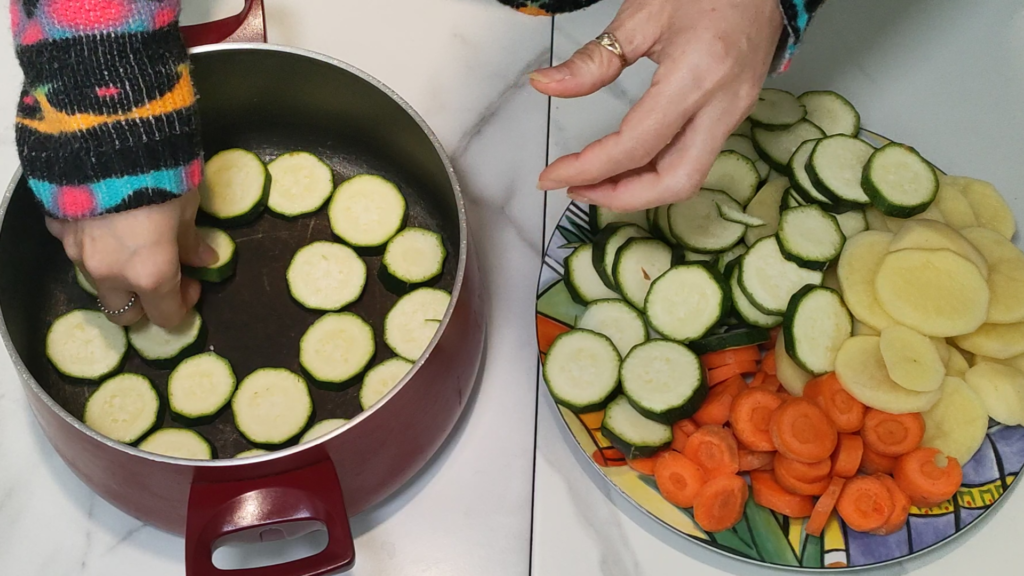
Composting Basics
Composting vegetables in a culinary context involves layering and cooking them in a way that maximizes flavor and texture. Unlike traditional composting, which breaks down organic matter for gardening, culinary composting aims to marry flavors through slow cooking and strategic seasoning. This method enhances the natural sweetness of vegetables, making them irresistibly delicious.
Seasoning for Success
The right seasoning can elevate a simple vegetable dish to gourmet status. For zucchini, consider using a mix of dried and fresh herbs. Dried oregano and basil add depth, while fresh thyme and rosemary impart a fragrant aroma. A pinch of sea salt, a dash of black pepper, and a splash of balsamic vinegar can further enhance the zucchini’s natural flavors.
Cooking Techniques for Zucchini
Zucchini is incredibly versatile and can be cooked using various techniques. Sautéing zucchini with a bit of olive oil allows it to retain its firmness and develop a slight caramelization, enhancing its natural sweetness. Alternatively, roasting zucchini in the oven brings out a rich, smoky flavor. Avoid overcooking to prevent it from becoming mushy; aim for a tender-crisp texture.

Combining Ingredients
The key to a successful vegetable compost meal lies in the harmonious combination of ingredients. Start by sautéing aromatic vegetables like onions and garlic to build a flavor base. Add the zucchini and other vegetables gradually, allowing each to cook evenly and absorb the seasonings. This method ensures that each bite offers a balanced taste and texture.
The Art of Slow Cooking
Slow cooking is perfect for compost meals as it allows flavors to meld over time. Use a slow cooker or a heavy-bottomed deep pan cook your vegetables on low heat. This gentle cooking method preserves the nutritional integrity of the vegetables while creating a rich, flavorful dish. Stir occasionally to ensure even cooking and prevent sticking.
Plating Your Vegetable Compost Meal
Presentation matters. To plate your compost meal beautifully, start with a base layer of grains like quinoa or brown rice, which complement the vegetables well. Arrange the cooked vegetables artfully on top, showcasing the vibrant colors. Garnish with fresh herbs like parsley or cilantro for a burst of freshness and a pop of color.

Serving Suggestions
Pair your vegetable compost meal with a simple side salad dressed in a light vinaigrette to add a refreshing contrast. Crusty whole-grain bread is perfect for soaking up any remaining juices. For beverages, a crisp white wine or a refreshing herbal iced tea can enhance the dining experience.
Storing and Reheating Leftovers
If you have leftovers, store them in an airtight container in the refrigerator. Vegetable compost meals often taste even better the next day as the flavors continue to develop. When reheating, do so gently on the stove or in the microwave to preserve the texture. Add a splash of olive oil or a bit of broth if needed to rehydrate the dish.

Embrace the simplicity and sustainability of vegetable compost meals, and let zucchini be the star of your next culinary adventure.

